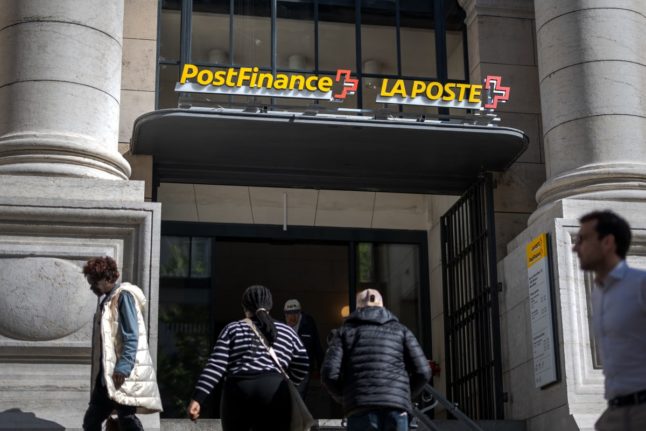Called Die Post in German, La Poste in French, and La Posta in Italian, Swiss Post is government-owned.
But that doesn’t prevent it from operating like any other business enterprise, by offering a variety of products and services besides the ones relating to handling mail.
Obviously, smaller post offices will offer fewer services than main or large branches which have…branched out into diverse commercial areas.
First, however, let’s look at its primary, post-related tasks:
Handling mail
This means, of course, that postal employees will sort, and then ship or deliver, tens of thousands of pieces of mail each day.
In fact, according to Universal Postal Union report, which rates postal services of 172 countries, Switzerland is in the number 1 spot in terms of reliability.
You can also purchase all the mail-relevant material at the post office: stamps, envelopes, cardboard boxes, labels, and bubble wrap.
What about non-post related products and services?
Buy your motorway sticker
If you drive on Switzerland’s motorways, then you need a vignette to attach to your car’s windshield each year.
The Post Office is one of the places where you can purchase it, aside from other venues like petrol stations and border crossings.
Pay bills
If you don’t like (or trust) e-banking services or apps, you can pay your bills at any postal branch.
In fact, you can still see people (though mostly older ones) paying their monthly invoices at the post office counter with cash, sometimes even with the 1000-franc banknotes.
Get money
As Swiss Post operates its own bank (read more about this below), you can use its ATMs to withdraw money — provided you have an account at this financial institution, of course.
Verify your identity
Swiss Post offers this useful service as well: SwissID, a free online identification via the SwissID App.
Once your identity is verified through documents you must submit electronically, you can then legally sign documents and contracts electronically.
You will also have access to various online portals that require proof of identity.
Shop
Post offices also have boutiques (physical or online), where you can buy anything from stationary and collectors’ stamps, to mobile phones, batteries, toys, books, and many other items as well.
Set up promotional space
If you want to advertise or even sell your products, you can rent space not only for your stand or display at postal branches, but also flyer dispensers and digital screens.
Meet clients
If you need to meet with clients but don’t know where, you can rent space for this purpose at a post office, where facilities such as consultation booths and other meeting areas are available.
True : the post office is not necessarily the first venue that will jump to mind for a business meeting but, why not?
The Swiss Post also offers two additional services:
Bank
PostFinance is the financial arm of the Swiss Post.
Unlike other banks in Switzerland, which are either privately owned or owned by cantons, the PostFinance belongs to the federal government, just as the Swiss Post does.
Transport
And then there is a true Swiss icon: the Post Bus — 2,400 vehicles covering a network of 936 lines that span almost 17,000 kilometres of country roads, no matter how narrow and winding.
Unlike ‘regular’ public buses, postal buses have two unique features: they are bright yellow and have a distinctive three-tone horn.
READ ALSO : Why PostBuses are true Swiss icons



 Please whitelist us to continue reading.
Please whitelist us to continue reading.
Does anyone know if Swiss Post provides foreign currency exchange and, if so, whether their rates are more reasonable than commercial exchange offices and traditional banks?